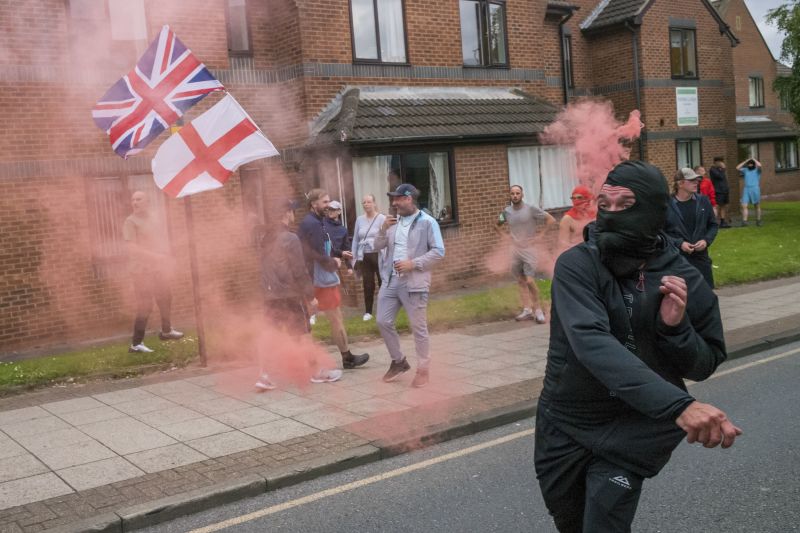As the dust settles on major cities across Britain after a series of large-scale riots, local authorities and citizens alike are holding onto the hope that the chaos has reached its zenith. However, amidst the relative calm, there is a palpable tension in the air as the far right continues to linger menacingly on the periphery. The seemingly quiescent situation could, in fact, be the calm before a potentially more troublesome storm.
The riots that have wreaked havoc across Britain were not a sudden occurrence. Fueled by deep-seated socioeconomic imbalances, rising inequality, and growing discontent among marginalized communities, the riots were a manifestation of an undercurrent of resentment that had been bubbling under the surface for years. The devastating impact of the recent riots is evident in battered physical infrastructures, disrupted economic activities, and a sign of fissures in a multicultural society.
Now, there is relative calm, but beneath the apparently peaceful façade, the far-right continues to be a thorny issue. Known for their extremist ideologies, aggressive rhetoric, and disconcerting actions, far-right movements have found fertile ground in these tumultuous times. Facing economic hardship, some citizens are becoming increasingly susceptible to these movements’ xenophobic and nationalist narratives.
The far right, with their masterfully crafted narratives, often manipulates economic and societal uncertainty, positioning themselves as a solution to the challenges faced by the ‘average citizen.’ Confounding factors such as imminent economic crisis, potential job losses due to automation or globalization, and the perceived threat of minorities often serve as adequate fodder to stoke the flames of far-right propaganda.
Moreover, social media has played a pivotal role in fanning the far-right flames. The decline of traditional media outlets coupled with the rise of online platforms provides an unregulated space that has proven conducive to the spread of far-right ideologies. Pseudoscience and misinformation campaigns, often targeting migrants and other marginalized communities, succeed in building a narrative that legitimizes violence and discrimination.
In light of this, more trouble could certainly lie ahead for Britain. The continued presence of the far right is indicative of an ongoing challenge that, if left unchecked, threatens to destabilize societal harmony.
The challenges of managing far-right movements are multifaceted. It requires robust law enforcement to head off violent actions, but beyond that, it requires a societal reckoning. The understanding and acceptance of diversity, coupled with policies supporting social mobility and equitable opportunities for all, can counter the narrative peddled by extremist groups.
Furthermore, the role of digital platforms must be scrutinized. More stringent regulations combating the spread of hate speech and misinformation online could curb the far-right’s reach, preventing it from infiltrating society at large.
Undeniably, Britain finds itself at a crossroads. It is imperative that the government, civil society, and citizens come together to face the challenges posed by the far right. Only through the collective effort can Britain hope to contain the threatening surge of the far right and prevent another potential wave of turmoil.




